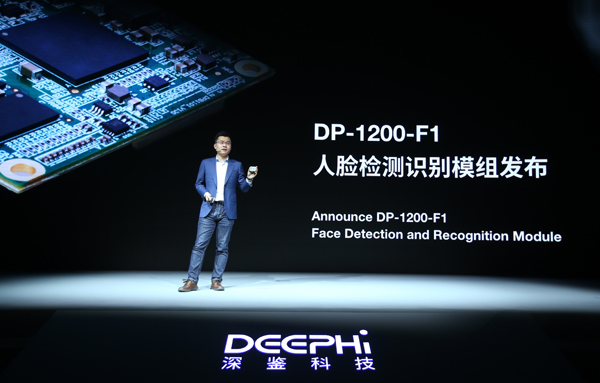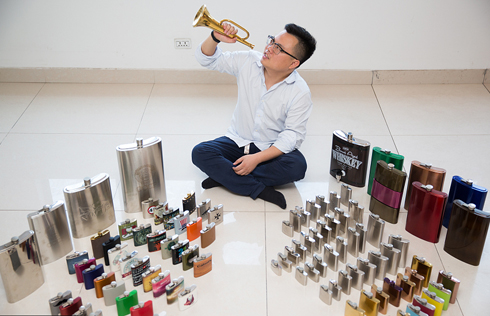AI startup draws big investors
 |
|
Yao Song, co-founder and CEO of DeePhi Tech, introduces the company's latest processor in Beijing on Tuesday. [Photo provided to China Daily] |
DeePhi Tech gets $40 million in funding for data center, security services development
Artificial intelligence processor startup DeePhi Tech has raised about $40 million in its latest round of financing, with investments led by Ant Financial Services Group and Samsung Venture Investment.
The deal is the first major investment in the AI semiconductor sector by Ant Financial, the financial affiliate of Alibaba Group Holding Ltd. It is also part of China's broader push to develop world-level computer chips to power the cutting-edge industry.
Yao Song, co-founder and CEO of DeePhi Tech, said part of the new cash will be used to accelerate the development of AI products and services for the security and big data fields.
"The injection of Ant Financial's strategic resources will also support us in exploring more application scenarios for the financial industry. The partnership with Samsung will center around data storage," the Beijing-based company said in a statement.
The investment is also reportedly Samsung's first bet on China's AI startups.
Founded in 2016 by a group of researchers from Tsinghua University and Stanford University, DeePhi Tech focuses on offering deep learning algorithms and processors to accelerate the application of AI in diverse sectors.
"Currently, we generate about 70 percent of our revenue from the security sector and the rest from the big data industry," Yao said.
Earlier this year, DeePhi Tech had already secured tens of millions of US dollars in its series A round of financing from six investors, including United States AI chip producer Xilinx, semiconductor-maker MediaTek Inc, Tsinghua Holdings and Sigma Square Capital.
The latest investment came after Cambricon Technologies, an AI chip startup affiliated with the Chinese Academy of Sciences, raised $100 million from investors such as Alibaba.
Cambricon unveiled its first chip, Cambricon-1A, last year, which the company branded as the "first commercial deep learning application". It can be used in the fields of robotics, drones, autonomous vehicles and consumer electronics.
Xie Yuan, an AI expert and professor from University of California, Santa Barbara, said because young Chinese researchers' work on AI hardware architecture has reached a world-class level, there is a huge opportunity for them to lead in the high-tech field.
In the first half of this year, China's AI startups have secured a combined record financing of 19.3 billion yuan ($2.87 billion), according to a report released by the tech-investment data website itjuzi.com.
In July, China unveiled a national development plan to build a 1 trillion yuan AI core industry by 2030, which is supposed to stimulate as much as 10 trillion yuan in related businesses. Developing homegrown AI processors is an important part of the ambitious goal.



















